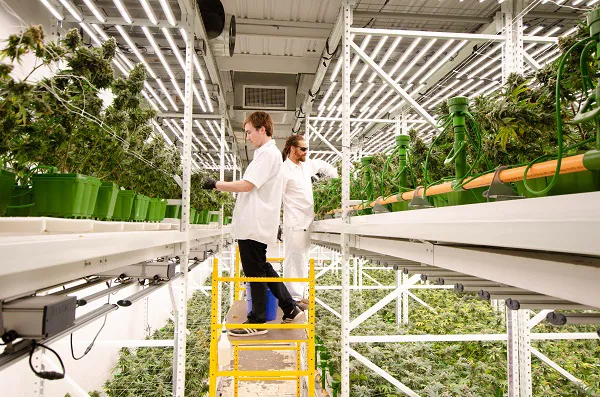In a move to professionalize the cannabis industry even more, Surna Cultivation Technologies is now offering Preventative Maintenance Programs. “I am a mechanical engineer with a background in the commercial HVAC space,” says Troy Rippe, VP Operations and Development at Surna. “In cannabis, it is interesting to me how intensive these mechanical systems are. Cannabis growers rely on sophisticated equipment. Yet, what seems to be lacking is taking care of things proactively in the right way – to be on top of everything so as to avoid catastrophic failures.”
To make a comparison, Troy discusses other types of commercial buildings. “Think of stadiums, data centers, hospitals, or school campuses,” he says. “The difference in this space is that you have a dedicated mechanical staff that commits itself full time to taking care of all those activities, ensuring that the systems run accordingly: things such as changing filters, checking electrical connections, and so on.” However, too often, such a thing seems to be lacking in the cannabis sector.
 Photo credits: Fluence Bioengineering
Photo credits: Fluence Bioengineering
Taking care of mechanical systems
“Surna Cultivation Technologies has worked on more than 200 commercial indoor facilities,” he continues. “And what I find interesting is that there is often no dedicated person doing the maintenance, which is instead left in the hands of the master grower.” Troy points out that unlike in most hospitals, data centers, and other large commercial buildings in which there are dedicated staff who are specifically trained to maintain the mechanical systems, this task is dropped in the laps of cultivators who usually lack the knowledge and experience necessary to keep their HVAC equipment in top shape. “They have to take care of the cultivation aspect of the facility. Asking them to maintain the HVAC is not only too much to ask, but also requires a certain mechanical engineering knowledge that can’t be acquired out of the blue. This is not a grower’s mistake; I think this mainly has to do with the fact that many cultivators have not operated buildings of this scale before, and can’t know the amount of caretaking involved with these types of systems.”
Be the ever-present mechanic
To better explain what he means, Troy makes an example. “Think of cars,” he says. “You buy a new car, a very expensive one with all the latest accessories. Initially, it drives beautifully. Then, after a long while and many miles later, it suddenly stops and doesn’t work anymore. So, you take it to the mechanic, saying ‘I don’t know what happened, it just stopped.’ But then, the question is: have you ever checked the oil? How about the tire pressure? In other words, you can’t expect a complex mechanical system to run smoothly 24/7 while never maintaining it. The reason why we launched our Preventative Maintenance Program is exactly to be that ever-present mechanic for growers so that while they focus on growing the best plant, we make sure that the mechanical system is tuned-up and working properly.”
A preventative approach is an even more appropriate one when it comes to large-scale manufacturing, especially when it’s about growing plants. “Mechanical failures can be potentially disastrous for growers: if something breaks, you might run into mold, pest outbreaks, and the dreaded scenario of crop losses, which would negatively affect your bottom line. Surna’s Preventative Maintenance Program offers a network that spans all across North America. We can carry out proactive inspections and also troubleshoot problems as they occur. It is important the market realizes that preventative maintenance is not optional, but rather it is standard procedure. HVAC systems are always out of sight, but they shouldn’t be out of mind.”
For more information:
Surna Cultivation Technologies
1780 55th Street, Suite A Boulder, CO 80301
T: (303) 993-5271
F: (303) 955-2544
[email protected]
surna.com
